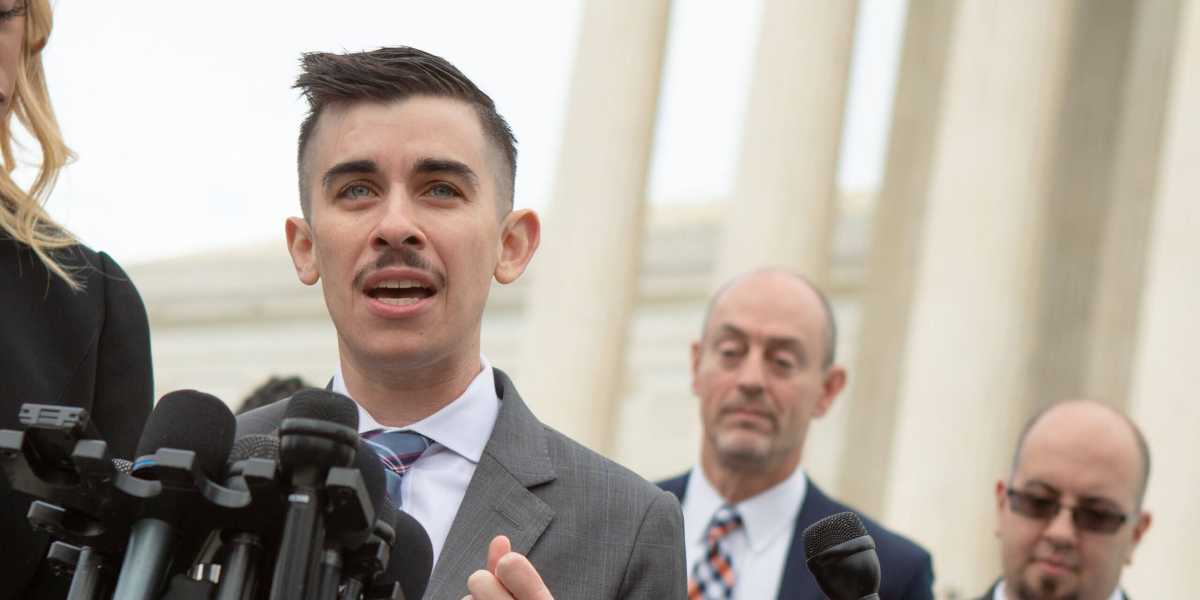For the second time in less than two years, the US Supreme Court has declined to review a lower court ruling rejecting a challenge mounted by cisgender students and their parents opposed to their local school district’s policy of allowing transgender students to use bathroom and locker facilities consistent with their gender identity.
In a lawsuit brought in 2018, opponents of the policy sued the Dallas School District in western Oregon arguing that protecting the rights of transgender students violated the rights of those students who were not transgender — by infringing on the privacy rights of cisgender youths, creating sex harassment barred by Title IX of the 1972 federal education amendments, and denying parents their First Amendment free exercise of religion rights to protect their children from viewpoints they consider immoral on religious grounds.
Cisgender students, their parents complaining of facilities’ access based on gender identity lose another round
On February 12 of this year, the Ninth Circuit Court of Appeals upheld a 2019 ruling by District Judge Marco A. Hernandez rejecting the claims against the school district.
In May 2019, the high court similarly refused to grant review of a ruling by the Third Circuit Court of Appeals that rejected a challenge to the trans-inclusive policies of the Boyertown, Pennsylvania, school district.
Four members of the Supreme Court must agree to review of a lower court decision in order for it to be granted, and it is noteworthy that the addition of a new conservative justice, Amy Coney Barrett, to replace the late liberal icon, Ruth Bader Ginsburg, did not change the court’s disinclination to disturb rulings made by a number of lower federal benches, including the Ninth and Third Circuit Courts of Appeals, on this point.
As transgender students have become increasingly assertive in seeking to affirm their rights to access facilities consistent with their gender identity — most notably, former Virginia high school student Gavin Grimm, who capped a five-year legal battle with a victory at the Fourth Circuit Court of Appeals in August — a backlash has set in, sparked in part by the efforts of anti-LGBTQ litigation groups such as Alliance Defending Freedom, which brought the suit against the Boyertown school district.
Interestingly, in the Dallas, Oregon, case, nine amicus briefs were filed with the Ninth Circuit — all from leading LGBTQ and other civil rights groups and medical and educational groups that opposed the claims against the school district. None of the usual suspects on the bigoted right filed briefs in support of the lawsuit, which was waged by a group that styled itself Parents for Privacy.
Representing Basic Rights Oregon and transgender students in the Dallas school district, the American Civil Liberties Union and the ACLU of Oregon were allowed intervenor status in the case, alongside the school district defendant.
In a written statement, Chase Strangio, the deputy director for trans justice with the ACLU’s LGBT & HIV Project, said, “The Supreme Court has once again said that transgender youth are not a threat to other students. As we look towards state legislative sessions that will likely continue the attacks on trans youth, the decision not to take this case is an important and powerful message to trans and non-binary youth that they deserve to share space with and enjoy the benefits of school alongside their non-transgender peers. We will continue to fight in courts, in legislatures, and in our families and communities to ensure that all trans people feel safe and belong.”
To sign up for the Gay City News email newsletter, visit gaycitynews.com/newsletter.
































